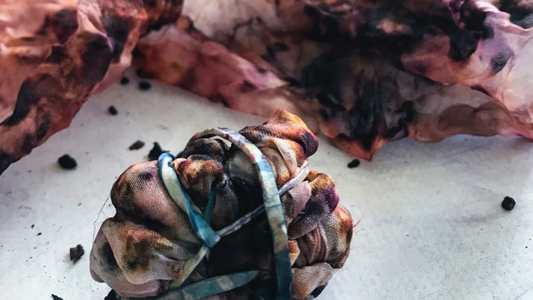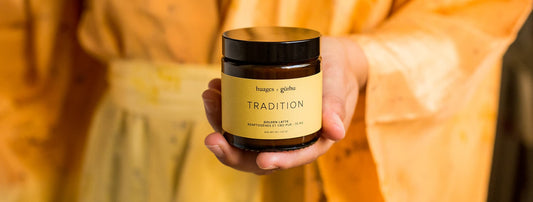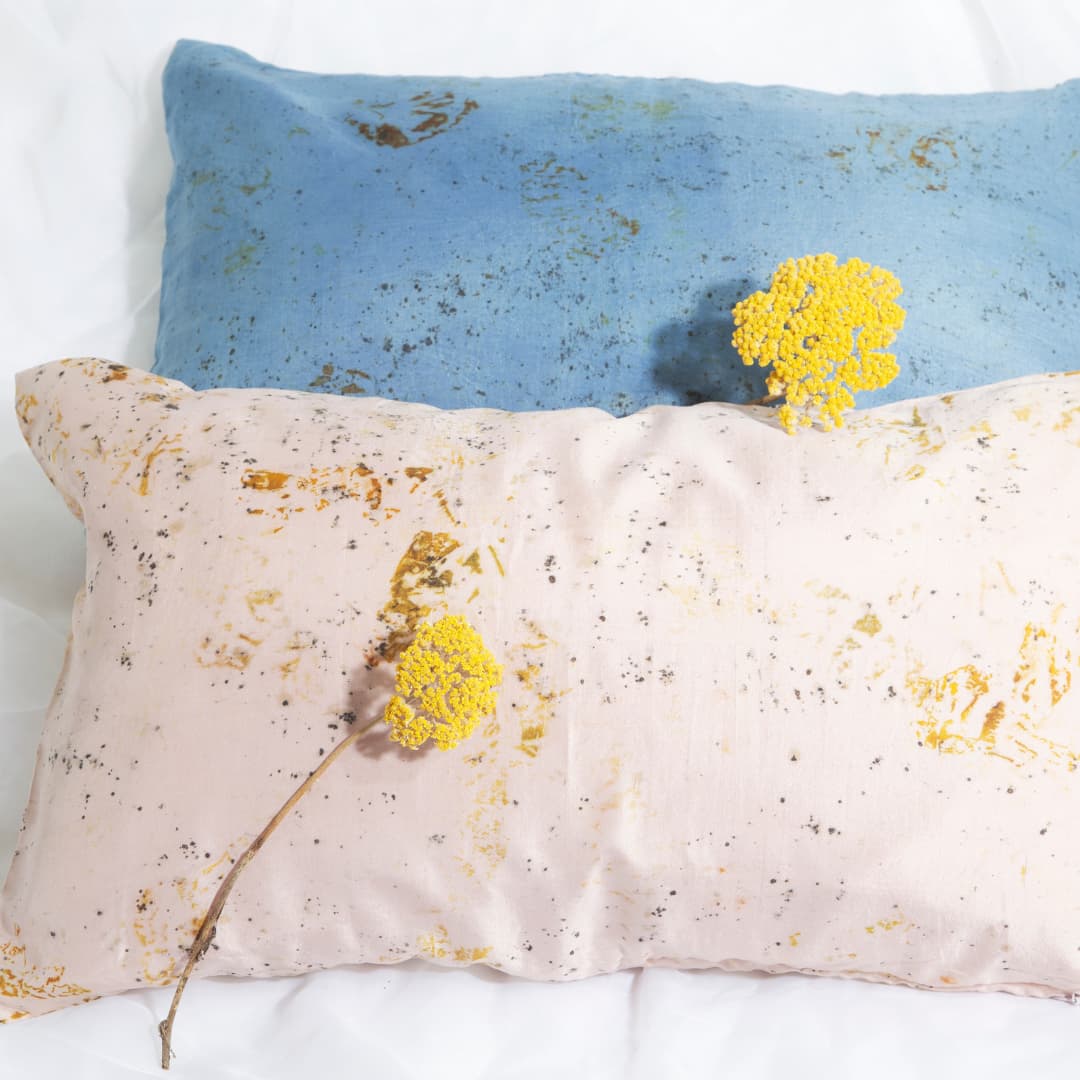A committed brand, Nimboo is inspired by the traditional know-how of spinning, weaving and vegetable dyeing mastered for centuries by exceptional craftsmen in India. As an ecological and socially responsible clothing brand , Nimboo sails against the grain of players in the textile industry. Its mission is to restore meaning and value to our dressing room.
At a time when overconsumption is pointed out and greenwashing is used as a marketing lever for major clothing brands, Nimboo wants to offer a quality alternative. Our sustainable and ethical collections are crafted with care and creativity, with full transparency in mind. We have created each step of our manufacturing circuit with an unwavering determination: to offer eco-responsible and ethical fashion that takes care of all its actors.
An innovative eco-responsible clothing brand
At Nimboo, we are convinced that it is possible to build a quality clothing brand while limiting its environmental footprint . More so, we believe in high-end fashion with positive impact. For us, the key lies in our heritage. We are inspired by centuries-old traditions to design a responsible wardrobe .Organic and vegan clothes
Ahimsa peace silk is a textile originating from the Assam region of India. Maintained for generations, these ecological sericulture are inspired by the Jainist and Buddhist tradition to develop a non-violent breeding method. Unlike other extraction methods which consist of smothering the chrysalis in its cocoon, our partner breeders extract it delicately before releasing it into the wild.This production technique, managed by the women of the community, is entirely eco-responsible and very meticulous, because the cocoon once empty requires cleaning. Washed with hot water and organic soap, the cocoons are then sent for spinning and weaving using traditional wooden looms. At this stage, the silk is still pure and white, no chemicals, heavy metals or synthetic materials have been added.
This is where the color work comes in. The silk is rolled up using the shibori technique, then immersed in a bath of vegetable coloring made with the flowers and sacred fruits thrown around Hindu temples. The fixers used are just as natural.
Some of our pieces are made with a GOTS ( Global Organic Textile Standard ) certified linen or cotton blend, just like peace silk. As an eco-responsible clothing brand, we only use eco-friendly and biodegradable fabrics.
 Vegetable dyes
Vegetable dyes
Low water and energy consumption
The textile and clothing industry is one of the most greedy in natural and energy resources and also one of the most polluting. Since our beginnings, we have wanted to make Nimboo a sustainable clothing brand and have therefore shaped our production method by constantly taking into account our environmental impact.To reduce our CO2 footprint as much as possible, we only deal with eco-responsible suppliers and have encouraged the installation of 45 solar panels. Our spinning and weaving looms perpetuate the Khadi tradition. A true symbol of the autonomy and self-sufficiency of the Indian people, organic Khadi is an artisanal method of clothing making that does not require electricity.
Finally, the coloring baths we use for tinting are harmless to the ecosystem and incorporate an ingenious water recovery system. Our delivery methods are CO2 neutral.
A zero waste policy
Some of our collections reuse saris or other fabrics that we treat to make them responsible. Although recycled or upcycled clothing is not the heart of our creations, we are careful not to throw anything away. Our fabric scraps are reused to make new pieces and give them character. Sometimes we use it to package our products or to give away and encourage you to do the same.Far from the incessant rhythm of fast fashion which depletes our resources by exploiting the rhythm of the seasons, Nimboo wishes to combine fashion and sustainability . Our nature-inspired collections are biodegradable and hold up well to everyday use. Our packaging made from corn starch is also biodegradable.
A socially responsible clothing brand
To respond to the growing concerns of their targets, many retailers proclaim themselves to be eco-responsible brands . We know, however, that a flourishing multinational can hardly transform itself into an eco-responsible clothing brand without reviewing its manufacturing circuit from scratch. And what about the social impact? Is it possible to become an ethical clothing brand without lowering its economic growth objectives?If an eco-responsible ready-to-wear brand increases the value of its products through its ecological positioning, this is just as valid for the ethical aspect. Low-cost contracting out and the exploitation of a precarious labor force to generate profit are methods of development that we strongly reject.
At Nimboo, the work of craftsmen is valued, their salary allows them to live with dignity, improve access to education and participate in the economic dynamism of the community. We work without intermediaries and collaborate with cooperatives of farmers and craftsmen. We want to make our name a fair trade clothing brand that is based on a circular economy and benefits all its stakeholders.

Ethical fashion, committed to women
India's social structure is still very much based on a caste system and an unequal distribution of wages between men and women. Its skilful, economical and numerous workforce is also the subject of economic speculation by the biggest ready-to-wear brands.This excessive search for profitability has deepened social injustices and further weakened the most stigmatized, especially women from low castes. Among them, those in rural areas often live below the poverty line. However, they are also the ones who, from generation to generation, have passed on the gestures and secrets of making the magnificent saris.
It is to support the emancipation of these women and highlight their formidable heritage that we have chosen to set up our workshops near them. Nimboo is an eco-responsible and ethical clothing brand that actively contributes to the economic independence of 43 skilled craftswomen. We design handmade pieces according to an ancestral Indian tradition that come to join our ecological clothing store based in France .
The silk of peace, the durable material that marks the Nimboo collections
Our eco-responsible clothing store is essentially made of peace silk which is an organic, ecological and cruelty-free material. Infinitely soft, silk is a precious and protein-rich textile that has multiple virtues.Light in summer and warm in winter, silk is a temperature-regulating fabric appreciated for the elegance of its drape. It also has many benefits for the body, as it maintains skin hydration, stimulates collagen and capillary keratin. It is a magic product known for centuries for its anti-wrinkle effect and the shine it brings to the hair.
Hypoallergenic and anti-mite, the peace silk we use for our organic clothing is suitable for sensitive skin. Nimboo is a vegan and eco-responsible clothing brand that uses no chemicals and soothes skin prone to eczema or psoriasis.
An eco-responsible clothing brand with sustainable development objectives
How do you know if a brand is ethical? How to dress eco-responsibly? More and more stores are promoting eco-friendly clothing lines, but the term is sometimes overused by the use of confusing eco-labels. On the other hand, an eco-responsible clothing brand is not necessarily ethical, as we have seen.To see this clearly, the United Nations has defined environmental and social sustainability goals that any citizen or organization can follow. These goals aim to protect the planet and reduce social inequalities in the world. It is by taking these criteria as a development model that we have designed our eco-responsible and ethical clothing store Nimboo.
These SDGs are our roadmap and we are proud of them. Each piece in our catalog therefore includes details of its eco-responsible and ethical characteristics. We also inform you about the origin of the clothes, the ingredients used for their dyeing and of course the ecological fabrics used.
For us, a responsible brand must have total transparency with its customers. Thanks to this, we also share the unique story behind each handmade garment in our store and thus give it back its full value.
Ecological clothing that draws on Indian and Japanese craftsmanship
When we talk about eco-responsible clothing brands, we often forget that our ancestors have worn them for centuries. During Antiquity and the Middle Ages, textile dyes already came from dye plants or animals. This is the case of rubiaceae, cochineal, broom or even indigo. Then appear in modern times dyes of mineral origin such as manganese brown or Prussian blue.It was the industrial revolution in the 19th century which gradually replaced craftsmanship with the production of large-scale manufactured goods. Discoveries in chemistry also made a leap forward and gave rise to synthetic dyes and then to disperse dyes. Long appreciated for their resistance, their low cost, and their great variety, they have also increased the pollution of the textile industry and have thrown into oblivion the know-how of the dyers of yesteryear.
Nimboo, as an eco-responsible clothing brand, revives little-known techniques that often persist in remote areas. India, a country crossed for centuries by the Silk Road, has indeed inherited an exceptional artisanal heritage that Gandhi knew so well how to carry as a symbol. But Nimboo is also a meeting between several cultures, that of French elegance, the richness of Indian craftsmanship and Japanese sobriety.
The kimonos , key pieces of our eco-responsible e-shop and inspired by the Land of the Rising Sun, are dyed, like all our other pieces, using the Japanese shibori technique. Because innovating is not reinventing, but bringing new meaning to a system that is running out of steam, we believe that an eco-responsible clothing brand owes its future to craftsmanship and art. Giving value back to our daily life by drawing on the best of each culture is for us the key to a more responsible way of life.











